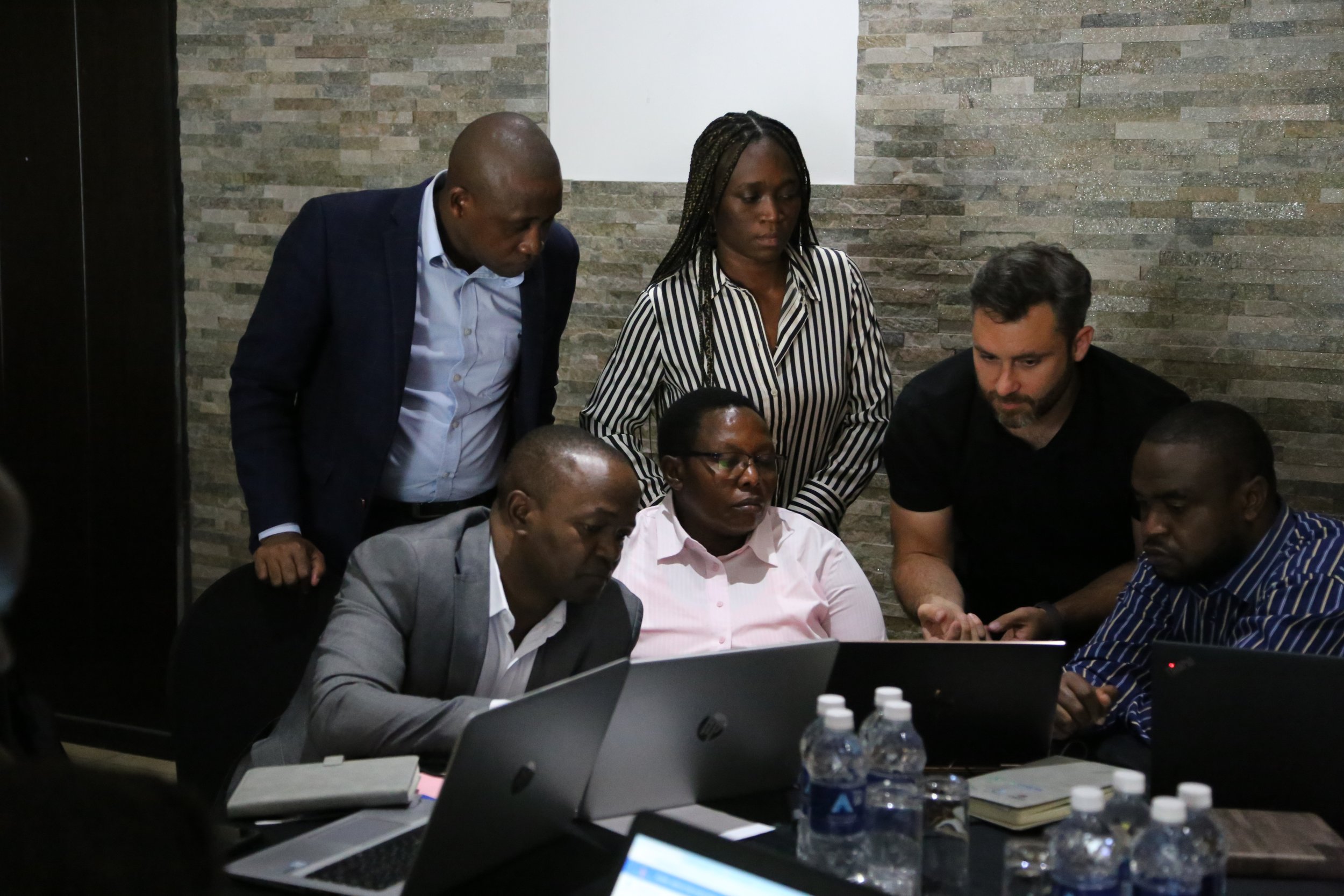People of Harvest Interview Series: Diana Botchway Frimpong
NASA Harvest, NASA’s Food Security and Agriculture Program, is a global consortium with contributions from people of many different backgrounds, specialties, and interests. What unites us all is a dedication to bolstering food security around the world through Earth observation applications, and a shared passion for technology that improves lives. We are proud of the work that we do and the people who produce it. This feature introduces the people of NASA Harvest, showcasing the members of our organization and how their efforts support a food-secure future.
Diana Botchway Frimpong is a driven young lady with an MSc in Urban Forestry and Natural Resource Management and a Bachelor's degree in Geography and Resource Development. She focuses on employing geospatial technology and data analytics to solve environmental-related problems on a much larger scale.
She is currently a Faculty Specialist (Research) with the NASA Harvest consortium in the University of Maryland. Aside her work, Diana loves learning how to play musical instruments, and occasionally likes to engage in various sporting activities.
Her favorite quote: “ If it must be done, it must be done well”
What do you do within the NASA Harvest consortium?
Majorly my role has been to utilize GIS and remote sensing tools to evaluate the impact of climate on croplands and as well as supporting the implementation of various other research projects within my research lab. Specifically, my daily routine spans across collaborating with colleagues on the implementation and completion of research projects, ensuring seamless integration and effective project coordination; support training and project outreach including developing training resources.
How did you get involved with NASA Harvest?
Interestingly I got referred for an opportunity with Harvest by my good friend who is now currently my colleague in the office. This opportunity came at the lowest points in my life and at the time having heard of Harvest it was an absolute delight to have had that opportunity to apply for a role that would allow me to produce research that aims at addressing critical agricultural and environmental gaps in our world today.
So far this experience has been rewarding and although its a continuous battle to be better and better each day, over the past year and half I have seen extreme professional and personal growth since I joined the consortium.
What do you enjoy about working with the consortium?
What brings me so much joy and actually makes me feel fulfilled working in the consortium is knowing that our research projects enhance agricultural resilience, brings awareness and allows policy makers make informed decisions in the face of the unprecedented food insecurity crisis in some parts of the African continent. As an african myself this really warms my heart.
On the fun side I so much love that I get to visit and experience other countries, cultures, and as well getting to meet those who call the shots and make things happens in the agricultural space in Africa.
Can you highlight one memorable project/experience that you’ve had with NASA Harvest?
Working with NASA Harvest has been nothing short of amazing! One memorable project experience was getting the opportunity to travel to Kenya for the first time in 2023 to assist with a field training workshop and field data collection campaign in Machakos.
This was a significant contribution to the project “Developing a framework for Regional Yield Data Collection” and I assisted with the training of Extension Agents on the utilization of geospatial tools for data collection. Most memorable for me was that I had the privilege of joining these agents to the field to obtain first hand crop cutting data collection experience in a farm in Nakuru Kenya. This experience required having to harvest maize from sub-plots within a farm, threshing and weighing these grains for data collection purposes. Not only was this an unfamiliar experience for me, but it also helped me better appreciate the work of these agents as they endure very braving conditions just to collect useful data for research.
What’s next for you?
I am currently collaborating with my supervisor and other lab members to synchronize our findings from our in-season data collection project from Kenya last year in a research paper for possible publication in the coming months.
Author: Keelin Haynes



